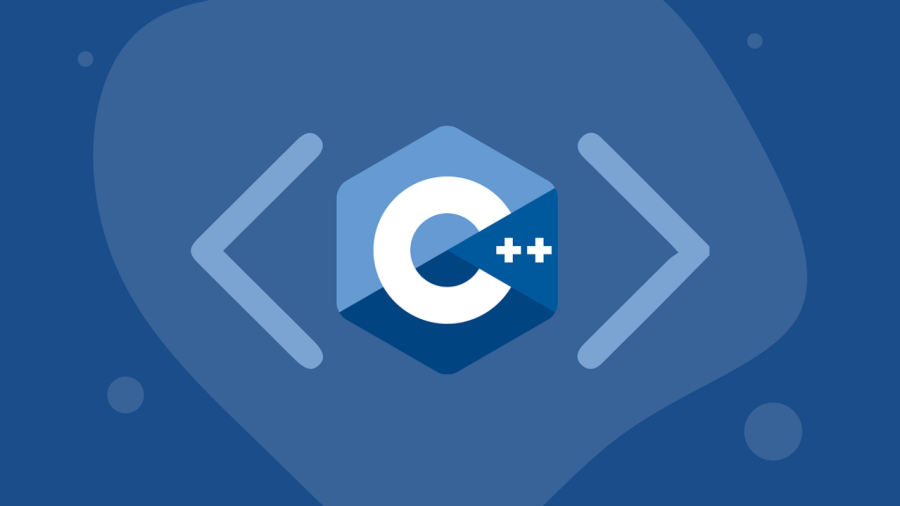C++ Programming Language: A Guide to Power, Performance, and Flexibility
C++ is one of the most powerful, efficient, and versatile programming languages in the world. Developed by Bjarne Stroustrup in 1979, C++ has become a cornerstone of modern software development, particularly for systems programming, game development, real-time applications, and performance-critical applications. It is widely regarded for its ability to give developers fine-grained control over system resources, memory management, and performance optimization.
In this article, we will explore C++ in detail, from its origins to its key features, real-world applications, and why it remains a popular choice for modern development.
What is C++?
C++ is a general-purpose programming language that extends the C programming language by adding object-oriented programming (OOP) features such as classes, inheritance, and polymorphism. While C is procedural and focuses on a linear approach to solving problems, C++ combines both procedural and object-oriented paradigms, making it more flexible and powerful.
C++ has been used to develop everything from operating systems and browsers to large-scale enterprise applications and video games. Its flexibility, efficiency, and rich set of features have made it a go-to language for building high-performance software.
Key Features of C++
1. Object-Oriented Programming (OOP)
C++ introduced object-oriented programming concepts, allowing developers to model real-world entities using objects. The key OOP features in C++ include:
- Encapsulation: Grouping related data and functions into a single unit, or class.
- Inheritance: Allowing one class to inherit properties and behaviors from another class.
- Polymorphism: Enabling objects to take many forms, making it easier to extend and maintain code.
2. High Performance
One of the most significant advantages of C++ is its ability to produce high-performance code. C++ allows direct manipulation of hardware resources, memory management, and fine-tuned performance optimization, making it the ideal choice for applications where speed is critical, such as video games, simulations, and real-time systems.
3. Memory Management
C++ gives developers direct control over memory management through the use of pointers, dynamic memory allocation, and deallocation. This allows for efficient use of memory and the ability to optimize applications for specific hardware configurations.
4. Portability
C++ programs can run on a wide variety of platforms, including Windows, Linux, macOS, and embedded systems. C++'s portability has made it a popular choice for cross-platform development, where applications need to run on different hardware architectures without significant changes to the codebase.
5. Rich Standard Library
C++ comes with a comprehensive standard library that includes a variety of functions, algorithms, and data structures, such as vectors, maps, and sets. This rich library enables developers to quickly implement complex features without reinventing the wheel.
6. Low-Level Access
C++ provides low-level access to system resources, allowing developers to write software that interacts closely with hardware. This feature is particularly useful for developing operating systems, device drivers, and performance-critical applications.
7. Multi-paradigm
C++ supports multiple programming paradigms, including procedural, object-oriented, and generic programming. This flexibility allows developers to choose the best paradigm for their specific problem, making C++ an extremely versatile language.
Advantages of C++
1. Speed and Efficiency
C++ is known for its execution speed and low-level capabilities, which make it suitable for performance-intensive applications. It allows for fine-tuned memory management, manual resource control, and optimization at the hardware level. As a result, C++ applications tend to run faster than those written in higher-level languages.
2. Control Over System Resources
C++ allows developers to have granular control over system resources, such as memory and CPU usage. This level of control is essential when building applications that need to maximize efficiency, such as operating systems, embedded systems, and real-time applications.
3. Wide Industry Adoption
C++ has been used for decades in various industries, including finance, gaming, telecommunications, aerospace, and automotive. Many large-scale software systems, such as database management systems, operating systems, and high-performance games, have been built using C++.
4. Backward Compatibility
C++ is backward compatible with C, which means that C code can be incorporated into C++ programs. This allows developers to leverage existing C libraries and codebases while still taking advantage of C++'s advanced features.
Applications of C++
1. Game Development
C++ is one of the most widely used languages for game development. Its high performance and low-level capabilities make it ideal for creating resource-intensive 3D games, game engines, and simulations. Many popular game engines, such as Unreal Engine, are written in C++.
2. Systems Programming
C++ is commonly used in systems programming, where developers need to interact directly with hardware and manage resources efficiently. Operating systems, device drivers, and embedded systems are often written in C++ due to its ability to provide low-level control over hardware.
3. Real-Time Applications
C++ is frequently used in real-time applications that require immediate processing of data, such as robotics, simulations, and telecommunications. Its performance and low latency make it suitable for applications that cannot afford delays in processing.
4. Financial Systems
C++ is widely used in the finance industry for developing high-frequency trading systems, risk management software, and other performance-critical applications. The ability to handle large volumes of data quickly and efficiently is a major advantage in the financial sector.
5. Web Development
While not as commonly used as other languages for web development, C++ can be employed in the back-end of web applications where performance is crucial. C++ is often used to build web servers, databases, and other performance-intensive back-end services.
6. Embedded Systems
C++ is also used in embedded systems, such as microcontrollers, robotics, and IoT devices. Its ability to interact directly with hardware and manage resources makes it an ideal choice for applications that run on embedded devices.
C++ vs Other Programming Languages
C++ vs Java
While both C++ and Java are object-oriented languages, C++ offers more control over system resources and allows for better performance optimization. Java, on the other hand, is easier to use and has automatic memory management (garbage collection), making it more suitable for enterprise applications where ease of use is more important than low-level control.
C++ vs Python
Python is known for its simplicity and ease of use, while C++ offers better performance and control over system resources. C++ is generally preferred for applications that require high performance, such as gaming and systems programming, while Python is often used for web development, data analysis, and automation.
C++ vs C
C++ builds on C, adding object-oriented features and better abstraction. While C is still widely used for low-level programming, C++ is preferred for applications that require more complex data structures, object-oriented design, and better performance optimization.
Learning C++
C++ is a powerful and versatile language, but it can be challenging to learn for beginners due to its complexity and low-level nature. However, with the right resources and practice, developers can master C++ and unlock its full potential.
1. Books and Tutorials
There are many excellent books and tutorials available for learning C++. Some popular resources include:
- “The C++ Programming Language” by Bjarne Stroustrup
- “Accelerated C++” by Andrew Koenig
- Online tutorials on websites like Codecademy, Udemy, and Coursera
2. Practice and Projects
The best way to learn C++ is through hands-on experience. Start with simple projects and gradually increase the complexity. Contribute to open-source C++ projects on GitHub or create your own applications to gain practical knowledge.
3. C++ Communities
Engage with C++ communities on forums like Stack Overflow, Reddit, and C++-specific subreddits. Joining a community can help you learn from others, ask questions, and stay up to date with the latest C++ developments.
Conclusion
C++ remains one of the most powerful and versatile programming languages in the world, with a rich history and a bright future. Its performance, low-level control, and flexibility make it the go-to choice for a wide range of applications, from systems programming and game development to real-time systems and embedded applications.
By learning C++, you gain the ability to develop high-performance software that can run on various platforms and handle demanding workloads. While the language can be challenging, mastering C++ opens the door to many exciting opportunities in the world of software development.















